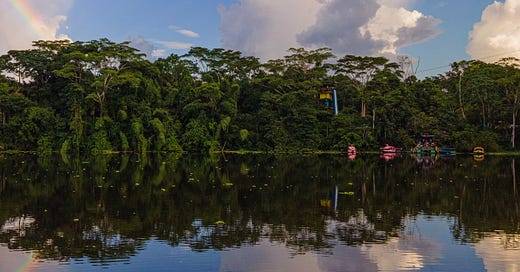Briefing Insight: a landmark deal for nature
🌐 Making sense of the UN summit that ended 2022 on a high note.
🌐 WorldWise Briefing | insight through the media narrative.
It was a spot of good news in a difficult year.
Shortly before 2022 drew to a close, the UN’s COP15 biodiversity summit ended with an international agreement hailed as a historic first for nature protection.
More than 190 countries pledged to protect vast areas of land and oceans by the year 2030, and reduce the extinction rate of all species by 2050, in order to stop and reverse the loss of nature worldwide.
The lesser known of two successive COPs—a generic term for “Conference of the Parties”, referring to the decision-making bodies of these UN conventions—the biodiversity summit continues to play second fiddle to its climate change counterpart in the media and in politics.
But as we noted previously, that’s starting to change. Nature protection is climbing steadily on the global agenda. The pandemic made the case for it stronger, despite ongoing uncertainty over the origins of Covid-19. And companies have begun to recognise biodiversity loss as a risk to business. This newfound political relevance added fresh tension to the proceedings in Montreal.
In this Briefing Insight we sift through the media narrative to distill key outcomes and significant details from the summit, why the new biodiversity pact matters, the conflicts in the run-up to the agreement—and a WorldWise reality check on its chances of success.
Keep reading with a 7-day free trial
Subscribe to WorldWise to keep reading this post and get 7 days of free access to the full post archives.



